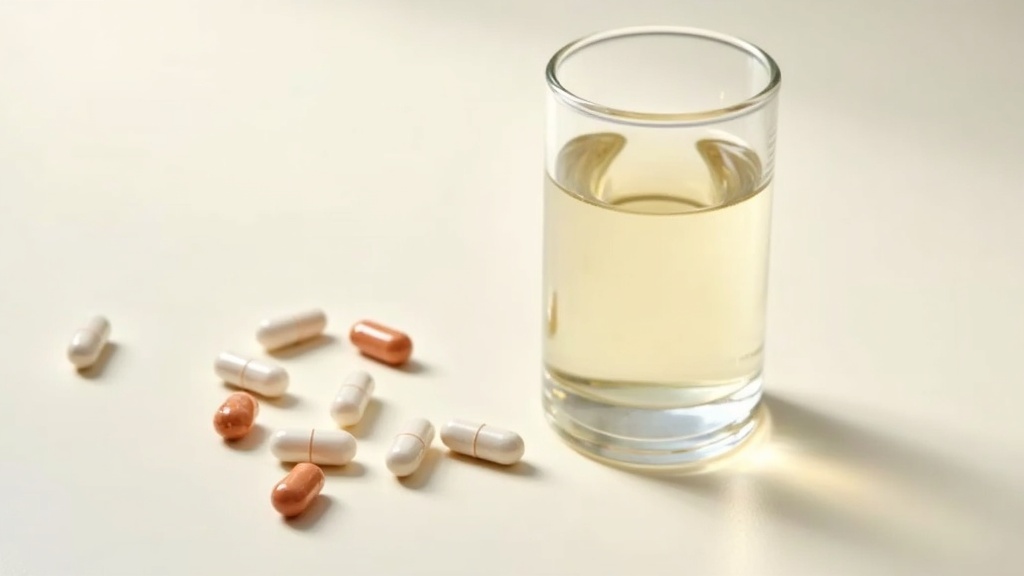Irritable Bowel Syndrome (IBS) brings all sorts of daily discomfort, from cramps and bloating to changing bathroom trips that throw off routines. If you’ve started reading about ways to manage IBS recently, you’ve probably run across advice about probiotics. These friendly bacteria are often recommended to support digestive balance, but it can be tough to figure out what actually works when shopping for a supplement. I’m going to break down what probiotics for IBS really do, how to choose one, and my own experience with adding probiotics to my IBS toolkit.

How Probiotics Support IBS: What’s Happening in Your Gut
Probiotics are living microorganisms, usually bacteria, found in foods and supplements. They’re the “good” bacteria, and they help keep your gut’s ecosystem balanced. In IBS, researchers believe there’s usually a mix-up in the normal gut flora, a slight change that can lead to more symptoms and sensitivity.
When I first started learning about IBS, the idea that bacteria in my intestines could change how I felt seemed kind of wild. But a lot of studies now show that people with IBS often have fewer beneficial bacteria and more aggressive ones, creating problems like gas, diarrhea, or constipation (sometimes both, since IBS can swing between the two).
Probiotics are commonly used with the idea that adding more helpful bacteria calms things down, restores balance, and helps ease digestive issues, even if it’s not a complete fix. Researchers have shown probiotics can help with bloating, gassiness, or irregular stools, though the effects can be pretty individual. Some strains have been studied more than others, which is worth knowing when shopping for a supplement.
Types of Probiotics and IBS: Different Strains, Different Effects
Not every probiotic is the same. There are thousands of strains, and each strain can behave differently in the gut. For IBS support, a few specific ones have been researched more than others:
- Bifidobacterium infantis: Shown to lower bloating, abdominal pain, and stool issues in people with mixed or constipation-type IBS. Look for it as B. infantis 35624 on some brands.
- Lactobacillus plantarum: Linked to helping with flatulence, cramping, and normalizing stool movements, especially for those who deal with both diarrhea and constipation. Commonly labeled as L. plantarum 299v.
- Streptococcus thermophilus and Lactobacillus acidophilus: These are sometimes included in multi-strain blends. Some people find these offer general support with regularity and discomfort.
- Multi-strain blends: A lot of research uses blends (sometimes called “syn-biotics” if combined with prebiotics). These can offer broader benefits, especially if your symptoms bounce around.
Worth noting: Not everyone responds to the same strain, so some experimenting is often needed. For me, a blend of Bifidobacterium species helped more than a single-strain Lactobacillus product, but I only found that out by trial and error.
Getting Started With Probiotics for IBS
Trying a new supplement always brings questions. Here’s a basic path that I followed when adding probiotics to my IBS routine:
- Doublecheck with your doctor: Especially if you take other medications, have immune issues, or have a complex medical history.
- Start with one type: Pick a reputable probiotic brand with a targeted strain for IBS (like B. infantis or L. plantarum) or a blend designed for gut health.
- Go slow: I started with one capsule every other day to let my gut adjust; some people feel mild extra bloating or gassiness for a few days, but it usually passes.
- Stick to it for at least 4 weeks: Most studies on probiotics and IBS run for at least a month, and changes take time. I felt lighter after about three weeks, with better mornings and less urgency.
- Track your symptoms: Keeping a simple journal helped me spot changes in gas, pain, or bathroom trips, so I could decide if the probiotic was helping.
If you’re new to using probiotics, it’s totally normal to have some hesitation. You might be unsure if it’s safe, or wonder about going the food route versus sticking to capsules. It’s worth talking to a healthcare professional who knows your history. They can help you figure out what approach will fit your unique case best and may have suggestions you wouldn’t stumble upon on your own.
Shopping Tips: What To Look For in a Probiotic
It’s easy to get lost in the huge wall of options at the pharmacy or online. Here are a few things I always check before I pick up a probiotic for IBS support:
- Strain listed clearly: Reliable brands list the exact strain, not just the species. For IBS, look for strains like B. infantis 35624 or L. plantarum 299v.
- CFU count: This stands for “colony forming units,” the number of live bacteria per serving. A typical range for IBS is 1–10 billion CFU, but more isn’t always better. It’s the right strain that matters.
- Expiration date: Since probiotics are living, their potency drops over time. I always check that the expiration date is a year or more away.
- Refrigeration: Some high-quality probiotics need to be refrigerated, while others are stable at room temp. The packaging should say what’s best for storage.
- Third-party testing: Products verified by groups like USP or NSF are more likely to actually contain what the label says.
Brands that I’ve personally found reliable include Align (B. infantis 35624) and Culturelle, though there are many others with solid reputations. Checking reviews on forums or IBS support communities can help steer you in the right direction too. You can also ask your physician or pharmacist for suggestions if you’re feeling unsure or overwhelmed by the options.
“Here’s a little transparency: Our website contains affiliate links. This means if you click and make a purchase, we may receive a small commission. Don’t worry, there’s no extra cost to you. It’s a simple way you can support our mission to bring you quality content.”
Common Questions About Probiotics for IBS
How soon will I notice any changes?
Based on both my experience and what studies suggest, it usually takes at least 2 to 4 weeks of daily use before symptoms might start to improve. Some people notice less bloating or pain after a week, while for others, it’s more gradual. Consistency is important; skipping days often resets the clock.
Do probiotics work for everyone with IBS?
No supplement or strategy works for every person with IBS. About half of IBS sufferers see clear benefits from probiotics, and the rest notice either mild change or nothing at all. It sometimes takes two or three tries with different strains or brands before you find one that’s a good fit.
Is it possible for probiotics to make IBS worse?
Most people tolerate probiotics fine, but some notice an increase in gassiness, looser stools, or bloating in the first week. This usually goes away, but if symptoms get way worse or don’t improve in a month, stopping or switching makes sense. Always let your doctor know if you have concerns.
Should I use food sources of probiotics instead of supplements?
Foods like yogurt, kefir, and fermented veggies have probiotic bacteria, and I try to include these in my diet too. Most foods have lower, more general bacteria types, while supplements have higher counts and more targeted strains. Both can help, but if you want a research-backed approach for IBS, look for a supplement with a proven strain.
Other Helpful Tips When Adding Probiotics
Probiotics are just one piece of an IBS management plan. I got the best results when I paired a probiotic with a few other good habits:
- Stay consistent with your new probiotic: Taking it at the same time each day is an easy routine booster.
- Remain patient: Changes are gradual, not overnight.
- Keep fiber steady: Switching fiber amounts quickly can cause more gassiness. If you’re following a low FODMAP diet for IBS, stick with that while trying probiotics.
- Manage stress: The gut and brain are closely connected. Stress management, like walks or mindfulness, can make a bigger difference than you’d expect.
- Stay hydrated: Drinking enough water each day may help regulate your digestion and help with smoother adjustments to probiotics.
If you use other supplements, such as digestive enzymes or antispasmodic herbs, try not to start them at the exact same time as probiotics. Keep changes staggered so you can spot what’s working and what might be setting off symptoms. This makes it easier to understand what’s genuinely affecting your IBS, instead of muddying the waters.
Things Worth Considering Before Picking a Probiotic
Everyone’s digestive system is different, and what works for one person with IBS might be totally useless for the next. Here are a few things to think about before investing money in a bottle of probiotics:
- Your specific IBS type: Do you lean toward constipation, diarrhea, or do you swing back and forth? Some strains target certain symptoms better.
- Ongoing medications: Probiotics are generally safe, but ask your doctor if you’re on immunosuppressants or antibiotics.
- Dietary allergies or sensitivities: Some probiotic capsules contain dairy, soy, or gluten. Most good brands label these clearly.
- Track your symptoms: Note what’s changing, good or bad, while on a probiotic so you know if it’s worth continuing.
If you’re someone who has dealt with IBS flares for years, the tiniest changes can make a big difference. Start by making a checklist of your main goals—less bloating, predictable bathroom trips, fewer bad days. This clarity will help when evaluating how any new probiotic (or combination of probiotics and other supplements) is working for you. Remember to give each new supplement a fair trial but don’t be afraid to switch things up if something just isn’t working for you.
Final Thoughts
Adding probiotics for IBS support doesn’t have to be complicated, but knowing what to look for can save you time and frustration. Starting slow, picking proven strains, and tying them into a broader selfcare plan gave me the best shot at more comfortable days. It’s worth chatting with a healthcare provider, especially if you’ve had trouble finding symptom relief or if your symptoms change suddenly. IBS can feel random and frustrating, but tools like probiotics sometimes help tip the balance toward better days. With some patience and trial and error, you might stumble upon a solution that brings a little more comfort to your day-to-day life.
